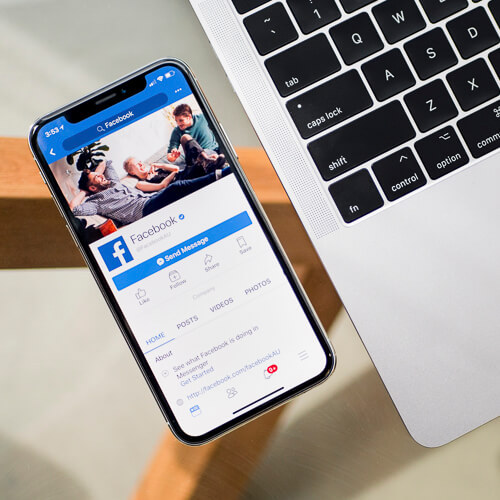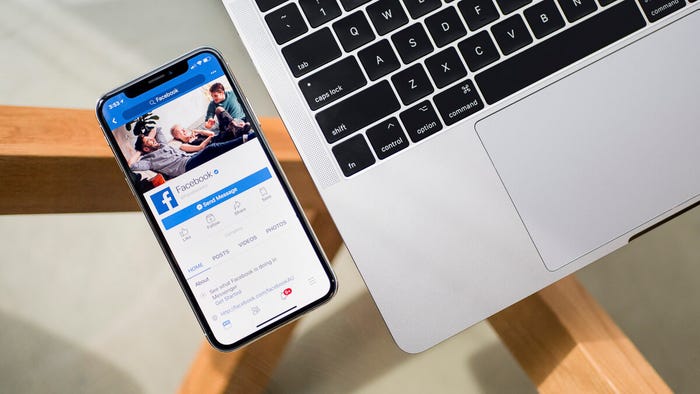Facebook to snub older users, go search for youth
Facebook will make deep changes to try to win back young users. So far its ad revenue has held up, but its political fortunes tell a different story.

Facebook will make "significant changes in the next year" to reverse its fast decline in younger users, its CEO Mark Zuckerberg told a conference call.
Making more of its short-form Reels, a format borrowed from TikTok, will be one example of the platform's plans for "retooling" itself "to make serving young adults the north star, rather than optimising for the larger number of older people," he said.
Facebook projects its daily users from 18 to 29 will fall by a whopping 45% in the next two years, according to one internal document leaked by whistleblowing former employee Frances Haugen in March.
Figure 1:  Coming of age: Facebook shows its years, as it joins the hunt for a more youthful audience – a wild goose chase that has dogged practically every media organisation and tech company, ever.
Coming of age: Facebook shows its years, as it joins the hunt for a more youthful audience – a wild goose chase that has dogged practically every media organisation and tech company, ever.
(Source: Tim Bennett on Unsplash)
"Time spent" for US teenagers on Facebook is down 16% year-over-year. Other documents from the trove – which have been termed "the Facebook Papers" – reinforce the view of a free-fall drop in Facebook's US younger users who logged on to the platform.Younger users consider Facebook "outdated" and "boring," said another internal study.
But I've never meta
More broadly, Facebook narrowly missed analysts' third quarter expectations in revenue ($29.01 billion versus $29.5 billion), advertisement sales ($28.27 billion vs $29.02 billion) and monthly active users (2.91 billion vs 2.98 billion), in results it released last night.
In place of revenues leaping to $34.8 billion, as analysts had expected for Facebook's fourth quarter, somewhere between $31.5 billion and $34 billion may be more realistic, the company gently guided.On the flip side, it beat predictions in net income ($9.19 billion vs $9.16 billion).
Zuckerberg tries to blame the press for his horrible company looking horrible https://t.co/IQZ2tHC7e6
— Thor Benson (@thor_benson) October 25, 2021
It warned that in the past three months of the year, "continued headwinds" would come from Apple's new requirement that apps get permission from users to track them for advertisements.
But still, compared compared with a year ago, its daily active users grew 6% (to 1.93 billion in September), and its revenue, which comes chiefly from advertising, soared by 35% (to $29.01 billion) – an indication that so far Facebook is holding pricing power in the digital ad market, where it is remains one of the space's behemoths.And nodding to recent speculation about a name change, Zuckerberg said the company will now report its revenue separately for its "reality labs" from its "family of apps" including Facebook, Instagram, Messenger and WhatsApp.
Faceoff
Meanwhile, apart from the question of younger users, Zuckerberg bounced out of the corner to rebut what he called "a coordinated effort" to portray a "false picture of the company."
"Zuckerberg tries to blame the press for his horrible company looking horrible," is how journalist Thor Benson described the performance on Twitter.Haugen appeared before the UK Parliament’s Joint Committee on the Draft Online Safety Bill on Monday, following up on her testimony to the US Congress earlier in the month.
The committee's chair, Damian Collins MP, said Haugen's evidence "strengthened the case for an independent regulator with the power to audit and inspect the big tech companies."The Online Safety Bill, aimed at regulating social media, is due to come before Parliament for approval in 2022.
Across the Atlantic on Capitol Hill, a package of six antitrust bills passed the US House Judiciary Committee in summer, aimed at weakening the market dominance of companies like Facebook, Amazon, Apple and Google, and banning them from acquiring potential rivals.
Want to know more about the cloud? Check out our dedicated cloud-native networks and NFV content channel here on Light Reading.
The proposals have been described as the biggest expansion of the US federal government's antitrust powers in generations.Facebook has "pioneered the oversight board as a model of self regulation," claims Zuckerberg.
The company has an independent advisory committee, though the board has complained about Facebook's lack of transparency and has stated it holds little power.Its political fortunes anyway seem to be worsening, even if its bottom line currently is not.
Hillary Clinton tweeted today that Facebook "has privileged lies, damaged our democracy, and worsened divisions in our society... knowingly, for profit."But to be fair, she still has an axe to grind about the 2016 US presidential election. Which, says Facebook executive Andrew Bosworth, Facebook ads won for Trump.
Related posts:
— Pádraig Belton, contributing editor special to Light Reading
About the Author(s)
You May Also Like












